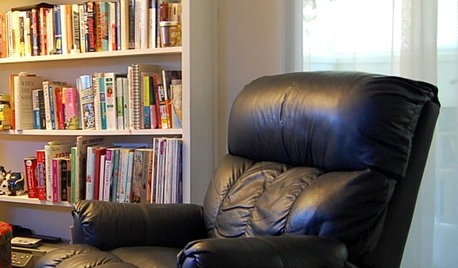feeling bad about buying a house that has tenants
kristin_c
10 years ago
Related Stories

PRODUCT PICKSGuest Picks: Beautiful Things You Can Feel Good About Buying
Upcycled, ecofriendly or just made responsibly, these home accessories and furniture pieces will keep your conscience clear
Full Story
LIFEHouzz Call: What Has Mom Taught You About Making a Home?
Whether your mother taught you to cook and clean or how to order takeout and let messes be, we'd like to hear about it
Full Story
FURNITUREHow to Buy a Quality Sofa That Will Last
Learn about foam versus feathers, seat depth, springs, fabric and more for a couch that will work for years to come
Full Story
REMODELING GUIDESOne Guy Found a $175,000 Comic in His Wall. What Has Your Home Hidden?
Have you found a treasure, large or small, when remodeling your house? We want to see it!
Full Story
MOVINGHome-Buying Checklist: 20 Things to Consider Beyond the Inspection
Quality of life is just as important as construction quality. Learn what to look for at open houses to ensure comfort in your new home
Full Story
LIGHTINGWhat to Know About Switching to LED Lightbulbs
If you’ve been thinking about changing over to LEDs but aren't sure how to do it and which to buy, this story is for you
Full Story
HOUZZ TVHouzz TV: This Dream Midcentury Home in a Forest Even Has Its Own Train
Original wood ceilings, a cool layout and, yes, a quarter-scale train persuaded these homeowners to take a chance on a run-down property
Full Story
MATERIALSInsulation Basics: What to Know About Spray Foam
Learn what exactly spray foam is, the pros and cons of using it and why you shouldn’t mess around with installation
Full Story
COLORS OF THE YEARPantone Has Spoken: Rosy and Serene Are In for 2016
For the first time, the company chooses two hues as co-colors of the year
Full Story
LIFEThe Beautiful Thing About Dad's Chair
My father had his own spot in the house. His father had his own spot. Now I have mine
Full Story








Pipersville_Carol
marvelousmarvin
Related Professionals
Euless Architects & Building Designers · Saint Andrews Architects & Building Designers · Eagan General Contractors · Artesia General Contractors · Augusta General Contractors · Brighton General Contractors · Evans General Contractors · Hermitage General Contractors · Markham General Contractors · Point Pleasant General Contractors · San Carlos Park General Contractors · Springfield General Contractors · Sterling General Contractors · Towson General Contractors · Cherry Hill Home Stagerskristin_cOriginal Author
rrah
sweet_tea
lazy_gardens
camlan
brickeyee
susanjn
sylviatexas1
artemis78
nosoccermom
kristin_cOriginal Author
oklahomarose
kristin_cOriginal Author
lazy_gardens
c9pilot
nosoccermom
kristin_cOriginal Author